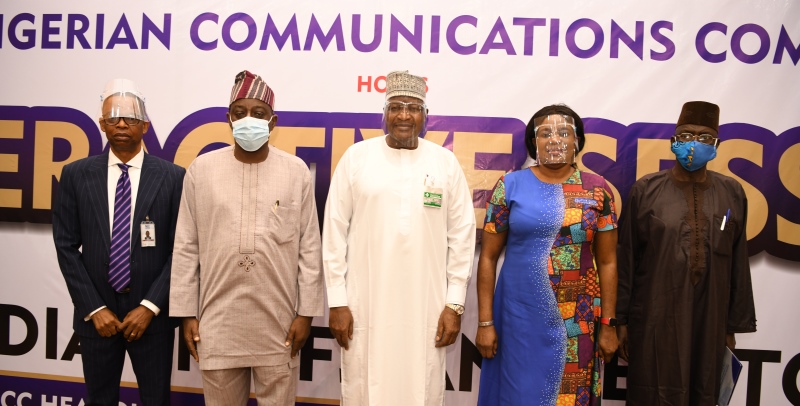Broadband penetration rose from a meager 6 percent in 2015 to a whopping 42.02 percent in July 2020, the Executive Vice Chairman of the Nigerian Communications Commission (NCC), Prof. Umar Danbatta has disclosed.
Danbatta disclosed this on Friday during an interactive session with senior media chiefs from the mainstream and online media community where he gave accounts of his stewardship as the Chief Telecoms Regulator in the last five years.
The increase in the broadband penetration in the last five years according to him is as a result of the diligent implementation of NCC’s Strategic Vision Plan (SVP), which focused on the 8-Point Agenda
“We are glad to report that Nigeria lifted broadband penetration from 6 percent in 2015 to 42.02 percent by July 2020,” he announced.
Rolling out other achievements in the last five years, the former University Lecturer revealed that the telecom sector’s contribution to GDP increased from 8.50 percent in 2015 to 14.30 percent in the second quarter of 2020, translating to N2.272 trillion financial contributions in the second quarter of 2020.
Also, five years ago, 217 access gap clusters were identified in the country affecting 40 million Nigerians without access to telecoms services. That has reduced to 114 with 15 million of the 40 million digitally excluded Nigerians now having access to telecoms services. The remaining access gap clusters, which are areas outside the frontier of the economic, will be addressed soon to ensure the remaining 25 million Nigerians have access.
In terms of Foreign Direct Investment (FDI), Danbatta admitted that FDIs, which stood at $1 billion 2015 in the telecom sector declined to $212 million by 2018. He, however, noted that through regulatory efforts, the FDI in the sector has picked up again reaching $930 million according to recent figures from the Central Bank of Nigeria (CBN).




